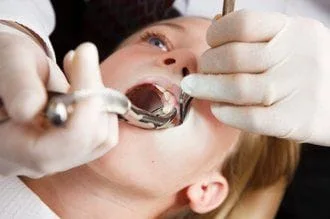Wisdom teeth extractions are a fairly common procedure. Wisdom teeth often cause problems as they are trying to come through the gums. When a wisdom tooth is impacted, it means the tooth is coming in at an angle and not straight through the gum line. This can cause pain, the tooth can come in unevenly, or the tooth may only emerge partially.
When a wisdom tooth only emerges partially a flap of skin, called an operculum, may form over the tooth. This can make the tooth hard to clean, and pieces of food can get caught under the skin. This makes it easy for an infection, called pericoronitis, to develop. It will usually go away on its own, but it causes swelling and pain in the area.
Impacted teeth and wisdom teeth that can potentially cause problems, like infections and discomfort, need to be removed. Extractions can range from removing a single tooth to taking out all four wisdom teeth at once. Based on the preference of the doctor and/or the patient, a local anesthetic could be used to numb the areas where the teeth will be extracted. Others will prefer to go under a general anesthetic so that they will be sedated during the procedure.
The gum tissue around the wisdom tooth is cut open to reveal the tooth. The tooth is loosened by gripping it tightly and wiggling it back and forth until it can be lifted out of the gums. Sometimes a tooth may be impacted so tightly that it cannot be simply lifted out of the gums. In cases like this, the tooth will be broken up into pieces first before being removed. Depending on the incision and extraction site, sutures may be needed to close the area. Soluble sutures are the best option, which will dissolve on their own.
You will need to rest after the extraction surgery. If you undergo local or general anesthesia, you need to be driven home by a friend or family member. You can expect for the extraction site to bleed for a little while after the surgery. Gauze will be applied at the completion of the surgery, and you will need to change it when it becomes soaked. If bleeding continues for longer than 24 hours you should call your dentist. Rest when you return home, but do not lie flat, as this could prolong the bleeding. Prop your head up on a pillow when lying down. Your dentist will prescribe you pain medication. If you become sore, take only as directed. You may also use an ice pack for the pain. Your dentist might also provide you with a cleaning solution to clean the extraction site. Follow all care instructions to avoid dry sockets, which is the premature loss of a blood clot at the extraction site, and prevent postoperative infection. You can read detailed post-operative instructions
here
.
You will be limited to soft foods for a few days after your surgery. Some recommended foods are:
- Gelatin, pudding, and yogurt
- Mashed Potatoes
- Ice Cream
- Thin Soups and broth
- ...and other food you can eat without chewing.
When drinking, make sure you do not use a straw, as the sucking motion can loosen your sutures and slow the clotting process. Avoid smoking during the healing process for the same reason. If you have prolonged pain or irritation, bleeding, or don't feel as if the extraction site is healing properly, call your dentist for a follow-up.
Extractions aren't limited to just wisdom teeth. If you have an impacted tooth, a loose, or a broken tooth, you may want to consider an extraction to prevent infections and discomfort in the area of the tooth. If you are considering an extraction, make an appointment with Dr. Smith today!

